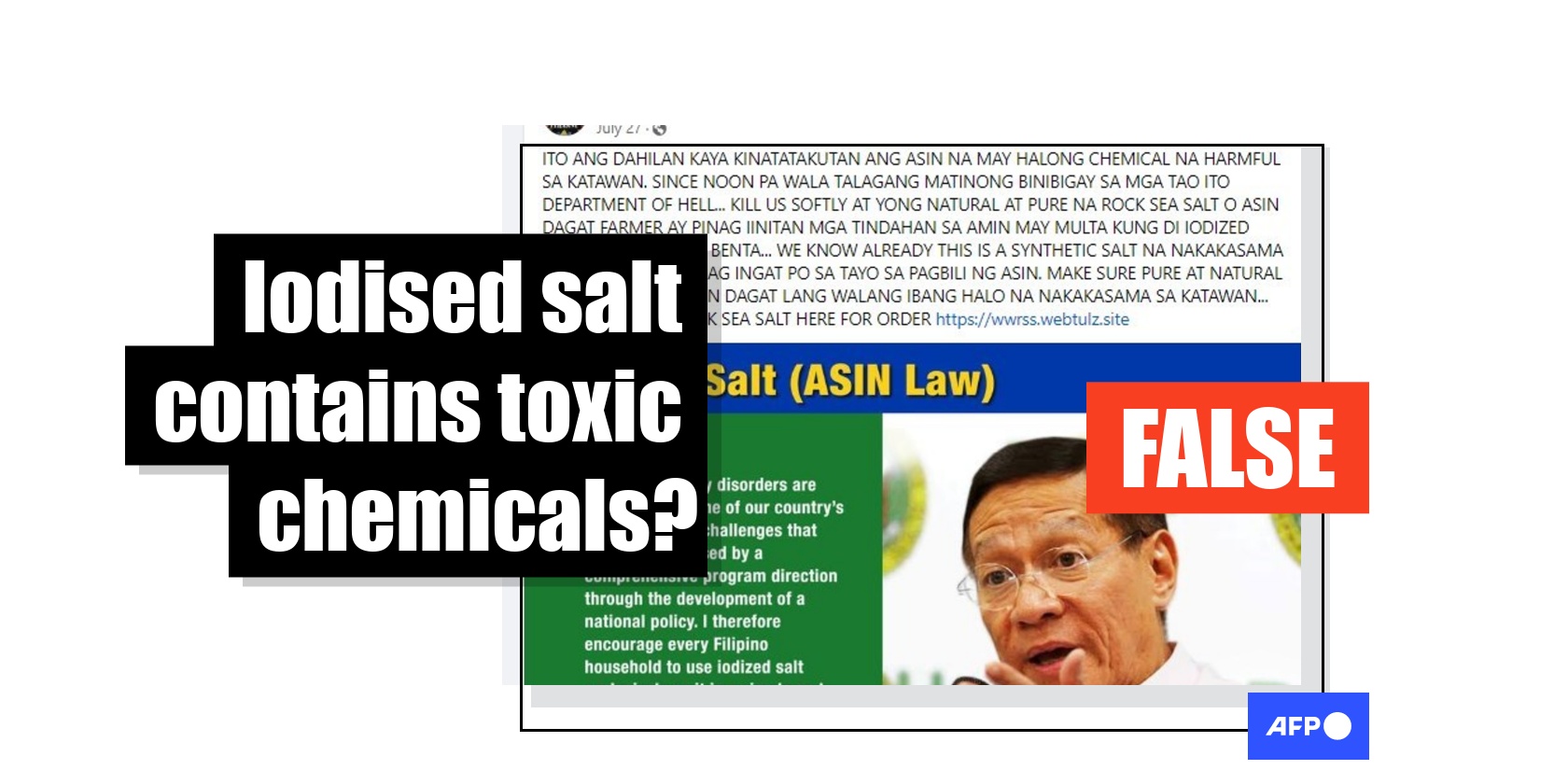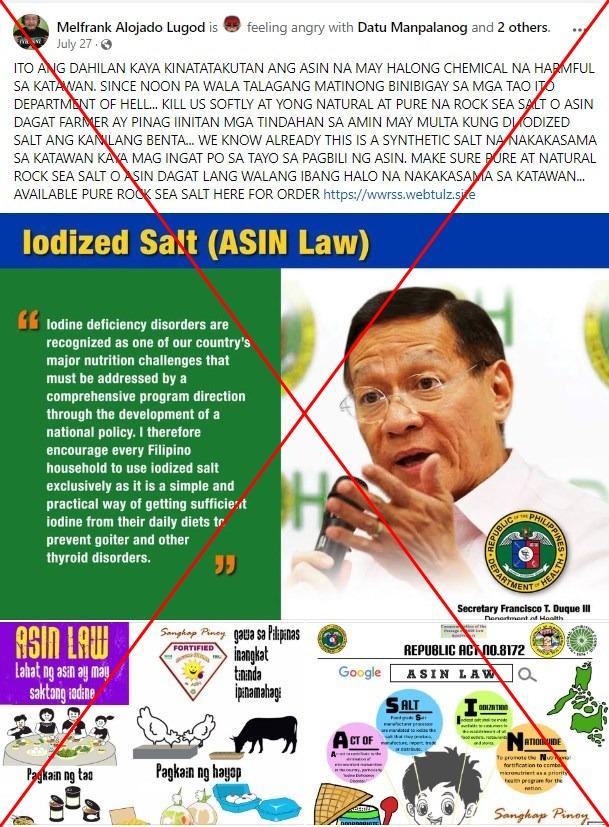
Iodised salt not harmful: health experts
- This article is more than two years old.
- Published on September 25, 2023 at 06:51
- 2 min read
- By Jan Cuyco, AFP Philippines
"We already know iodised salt is a synthetic salt that is harmful to the body," says a Facebook post shared on July 27.
Iodised salt is salt fortified with iodine, which the body needs to make thyroid hormones that develop the brain.
The World Health Organization (WHO) recommends all food-grade salt used in households and food processing be iodised to tackle iodine deficiency disorder (archived link).
Philippine law requires salt producers and manufacturers to add iodine to salt -- but senators are mulling an amendment to the law to make it optional for salt not used for human consumption or local food production (archived links here and here).
The Facebook post shows a quote from former health chief Francisco Duque III encouraging Filipino households to use quality iodised salt to prevent iodine deficiency disorders.
The post accuses the archipelago's health department of "killing Filipinos softly" by purportedly clamping down on rock salt and warns that iodised salt "contains toxic chemicals".

Similar Facebook posts shared the false claim here, here and here.
Iodine deficiency
Daryl Dagang, an endocrinology consultant at the Moorehouse Mission Hospital in the southern island of Mindanao, said iodised salt is neither synthetic nor harmful (archived link).
"Iodination of salt is just sprinkling a little bit of iodine mineral to the production of table salt to make it iodine fortified," he told AFP on September 22.
"It is still salt but with enough iodine to supply the needed iodine levels in the body".
Francis Xavier Mislang, an internist-endocrinologist, also told AFP on September 21 that iodine is an essential nutrient for normal thyroid function and for the immune system (archived link).
A deficiency in iodine leads to several complications including intellectual disabilities and stunted growth. Philippine health authorities have once described iodine deficiency disorder as a "serious public health threat".
The WHO recommends a daily intake for iodine of 150 microgrammes for adolescents and adults, and 120 microgrammes for children ages 6 to 12 years old.
Only one out of three Filipino households uses adequately iodised salt, according to a 2021 nutrition survey by the Department of Science and Technology (archived link).
A review of bills in the Philippine Senate and the House of Representatives seeking to revise regulation on iodised salt found no mention of its puported health risks.
The proposed measures, pending in Congress as of September 22 say they aim to make the country's salt industry more competitive.
Copyright © AFP 2017-2026. Any commercial use of this content requires a subscription. Click here to find out more.
Is there content that you would like AFP to fact-check? Get in touch.
Contact us
